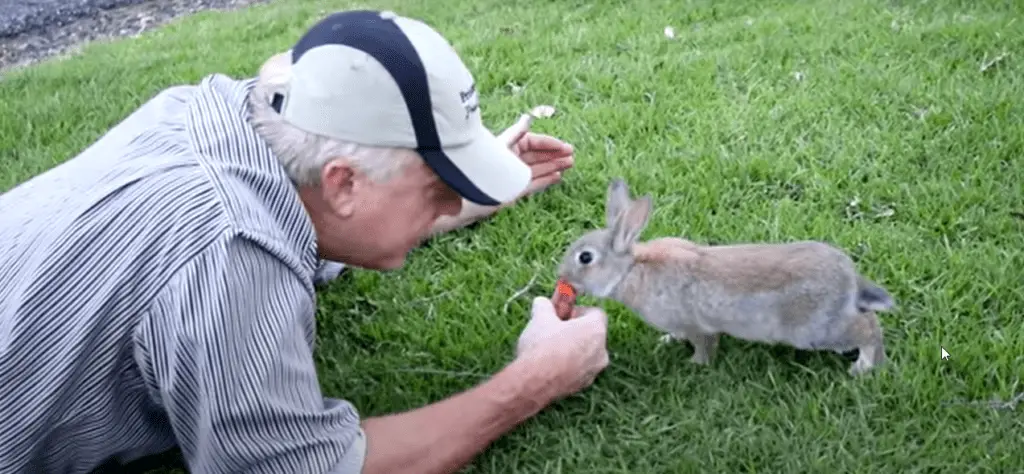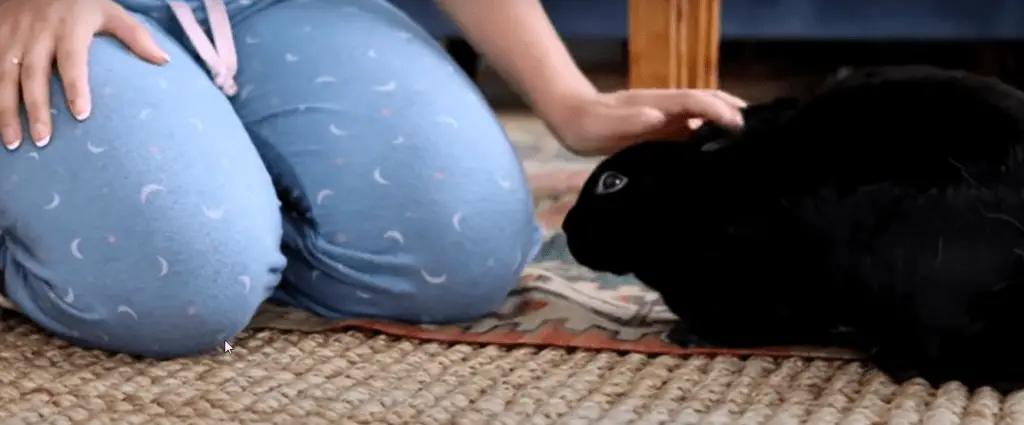Do Rabbits have Long Lifespan ?

Contrary to their wild counterparts who rarely exceed the age of 3 years, Domestic Rabbits, if we know how to take care of them, can live more than 15 years for some breeds, 16 years in the Guinness Book of Records and we have even seen a rabbit that lived for 18 years.
The age of a rabbit will of course depend on many factors, first of all its breed and then the effort that its parents will put into taking care of it; by giving it a good diet, a good hygiene especially of its cage, a monitoring of the symptoms of diseases and a timely intervention if necessary, an environment free of stress and other factors that we will see a little later in this article.
But for now, let’s see how many rabbits live, which breeds of rabbits generally live longer than the others and finally, what to do so that your rabbit can live as long as possible?
Which breeds of rabbits live longer than others?
The world of rabbits is not so different from that of other pets and they also obey the law that says that the bigger you are, the less you will live.
Dwarf rabbits, Dwarf Rabbits and Lops … ; small rabbits I mean, generally live twice as long as giant rabbit breeds like the French, English lops or Flemish Giants … etc.
Here is an estimate of the life span of rabbits according to their breed:
| Rabbit Breed | average Lifespan |
| Wild Rabbits | 1 – 3 years |
| Mini Lop | 7 – 14 years |
| Agouti | 8 – 14 years |
| Holland Lop | 7 – 12 years |
| Angora | 7 – 12 years |
| Netherland Dwarf | 9- 12 years |
| Polish | 8 – 13 years |
| Jersey Wooly | 7 – 12 years |
| Mini Rex | 8 – 12 years |
| Lops | 8 – 12 years |
| Lionhead | 7 – 10 years |
| Californian | 5 – 10 years |
| Checkered Giant | 5 – 8 years |
| Dutch | 6 – 9 years |
| Himalayan | 7 – 10 years |
| American Sable | 5 – 8 years |
| Britannia Petite | 5 – 9 years |
| Rex Standard | 5 – 6 years |
| Flemish Giant | 4 – 7 years |
| Palomino Rabbit | 5 – 8 years |
| Rhinelander | 5 – 8 years |
| Satin Rabbit | 5 – 8 years |
| Satin Angora | 7 – 12 years |
| Silver /Silver Fox Rabbit | 7 – 9 years |
| Silver Marten Rabbit | 5 – 8 years |
| Tan Rabbit | 8 – 10 years |
| Rabbit Breeds | Average lifespan |
| Continental Giant | 4-5 years |
| English Lop | 5-7 years |
| French Lop | 5-6 years |
| Holland Lop | 7-10 years |
| American rabbit | 8-12 years |
| American Fuzzy Lop | 5-8 years |
| Argenté Brun | 7-10 years |
| Argenté Crème / De Champagne | 7-9 years |
| Belgian Hare | 7-10 years |
| Beveren | 5 -8 years |
| Blanc de Hotot | 7-10 years |
| Chinchilla Rabbit | 7-10 years |
| Chinchilla Giant | 6-8 years |
| Cinnamon Rabbit | 5-8 years |
| Dwarf Hotot | 7-10 years |
| Florida White | 5 -8 years |
| Giant Angora | 7-11 years |
| Giant Papillon | 4-7 years |
| Harlequin Rabbit | 5-8 years |
| Lilac Rabbit | 9-12 years |
| New zealand Rabbit | 5-10 years |
| Thrianta Rabbit | 5-8 years |
| Velveteen Lop | 5-11 years |
| French Angora | 7-12 years |
| English Spot Rabbit | 6-8 years |
| Dwarf Lop | 6-8 years |
To summarize this table and include other breeds of rabbits, I would say that for the same living conditions and when you take good care of your rabbit, if it is a rabbit that belongs to the small breeds (Lops, Mini, Dwarf, Dwarf), expect at least a life span of 10 years, or even more; because for example; Mick, 16 years old , an agouti rabbit from Illinois, USA, the oldest rabbit according to Guinness World Records ), there are some who live more than that ! ! .
But more and more the size of the rabbit increases, its life expectancy decreases, because some giant breeds of rabbits, rarely live more than 3 or 4 years especially when we don’t know how to take good care of them !
What are the factors that determine the length of life of a rabbit ?

We have seen just before that the breed of rabbit is an essential factor that determines its life span, but what influences the life span of a rabbit apart from its breed and how to make your rabbit live as long as possible,
Before going into more detail, I would say that for a rabbit to live as long as possible, it will need four essential things:
- To feel safe and loved all the time
- Eat well and drink and eat just enough
- Physical and intellectual exertion
- Have a perfect hygiene and regular check-ups at the vet.
Let’s take a closer look at this:
1- A good diet improves the life expectancy of the rabbit
For a rabbit to live a long time, it needs a healthy diet, composed of 70% of quality hay, and cut according to the age of the rabbit. The rest will be pellets not too rich in protein, rather rich in fiber, treats not too sweet and occasionally and finally fresh water at will and renewed daily.
2- A comfortable and well-equipped habitat for your rabbit so that it lives a long time
For a rabbit to flourish and live a long life, you must provide it with a large cage or hutch, well equipped with underground hiding places if you can imitate their natural habitat, if not install surface tunnels, but above all, a cage installed in an ideal place:
- Not too hot or too cold (60 – 65 °F).
- A place far from the draught
- A corner without humidity
- A place away from outside noise like the one in the house
- A place where your rabbit can see you when you are at home.
In addition to that, the rabbit cage must be equipped with a litter box, an absorbent mat on the floor, at least one small house and a small promontory where your rabbit can watch his surroundings.
I would recommend a cage without a ceiling and especially without bars on the floor to avoid hurting your rabbit and especially so that he doesn’t feel like he’s in a prison and so that he can stand up when he wants to or even jump to express his joy for example.
3- The feeling of security allows the rabbit to live longer
Rabbits are prey by nature and if you want your rabbit to have a long and happy life, you must absolutely do everything you can to make him feel safe, not only in his cage but in your whole house and even when you take him outside.
Learning about rabbit behavior and body language will allow you to understand what scares your rabbit and how to avoid it, it must be said that each rabbit has its own personality and nightmares.
For your rabbit to live a long life, you will also need to give it a lot of attention, love, interaction, games and stimulation.
A rabbit that is bored or stressed all the time because you don’t know the reasons why and you don’t avoid them, is a rabbit that will only live half of what it should normally live in better conditions.
4- A Rabbit that takes care of itself in time and a Rabbit that will live a long time
In order for a rabbit not to die prematurely, you must learn to detect diseases as soon as they appear, especially if you know that rabbits do their best to hide the symptoms (innate behavior of prey).
So learn to detect your rabbit’s health problems before they become serious and can be fatal, a runny nose, a sneeze, a clump of hair in the cage….
Regular visits to the veterinarian are also an excellent way to prevent your rabbit from getting sick by surprise, which could cost him his life.
Finally, after the stress, a good hygiene of the rabbit and its environment is the best way to avoid most of the illnesses.
Up-to-date vaccinations and anti-parasites are also an effective way to avoid health problems in rabbits, as well as sterilization to avoid unnecessary stress and genital pathologies.
5- Exercise and going out of the cage

A rabbit needs to write and express itself even if it has been born from a rather calm breed.
To extend the life span of your rabbit, you must therefore take it out of its cage daily, at least half an hour in the morning and another half hour in the evening so that it can stretch its legs, run and jump and burn its excess fat, mix its sludge or excess calcium crystals with its urine in its bladder to evacuate them, consolidate its fragile spine, forget its stress or loneliness, avoid GI Stasis. …it must be said that sport is essential, if not vital for a rabbit.
This will prevent him from becoming obese and above all, it will avoid many health problems, especially digestive diseases, the first cause of mortality in rabbits.
Rabbits are also great toy lovers, the more toys you give them, the better; at least one cardboard box that they will gnaw on with their incisors if you can’t afford it.
6- Male “Bucks” Rabbits tend to live longer than female “Does”
According to one study, rabbit gender also has an influence on their lifespan, males tend to live 30% longer than females (high risk of cancer after the age of 4 years) but are more exposed to dental problems if you are not careful.
But as Dr. Jo Hedley, the famous veterinarian, said, many causes of early mortality in rabbits can be avoided with good care, a good diet, regular maintenance of the cage and the rabbit and regular visits to the veterinarian. source
7- Rabbits live longer in pairs
Loneliness can cause premature death of a rabbit, it will gradually suffer emotional trauma, especially if it lacks intellectual stimulation and interaction with its owner. This trauma will become a mental illness that will eventually overpower the poor rabbit.
It is known that rabbits are social animals that love the company of their fellow rabbits, especially when food is abundant.
Therefore, a rabbit that lives alone in its cage, especially if it doesn’t have a lot of contact with its parents, will probably live a little less than a rabbit that has a companion in its cage on the condition that they are introduced to each other.
On the other hand, I think that a rabbit will make old bones alone only in the company of a clumsy cat or dog, which will stress him and often invade his territory, which rabbits hate the most in the world.
Let’s Wrap it all Up
Finally, pet rabbits generally have a much longer life than their wild counterparts, but if you want a rabbit that will live longer, choose a small or medium size breed.
It’s not an exact science but giant rabbits can live a long time too if you take good care of them.
Of course we can only guess the age of the rabbits according to their breed and lifestyle, the truth is that each rabbit is unique and many rabbits have surprised their parents by living much longer than their congeners.
Long life to your rabbit.



